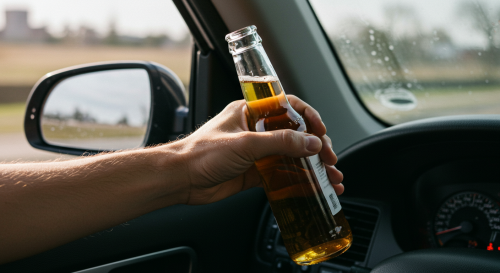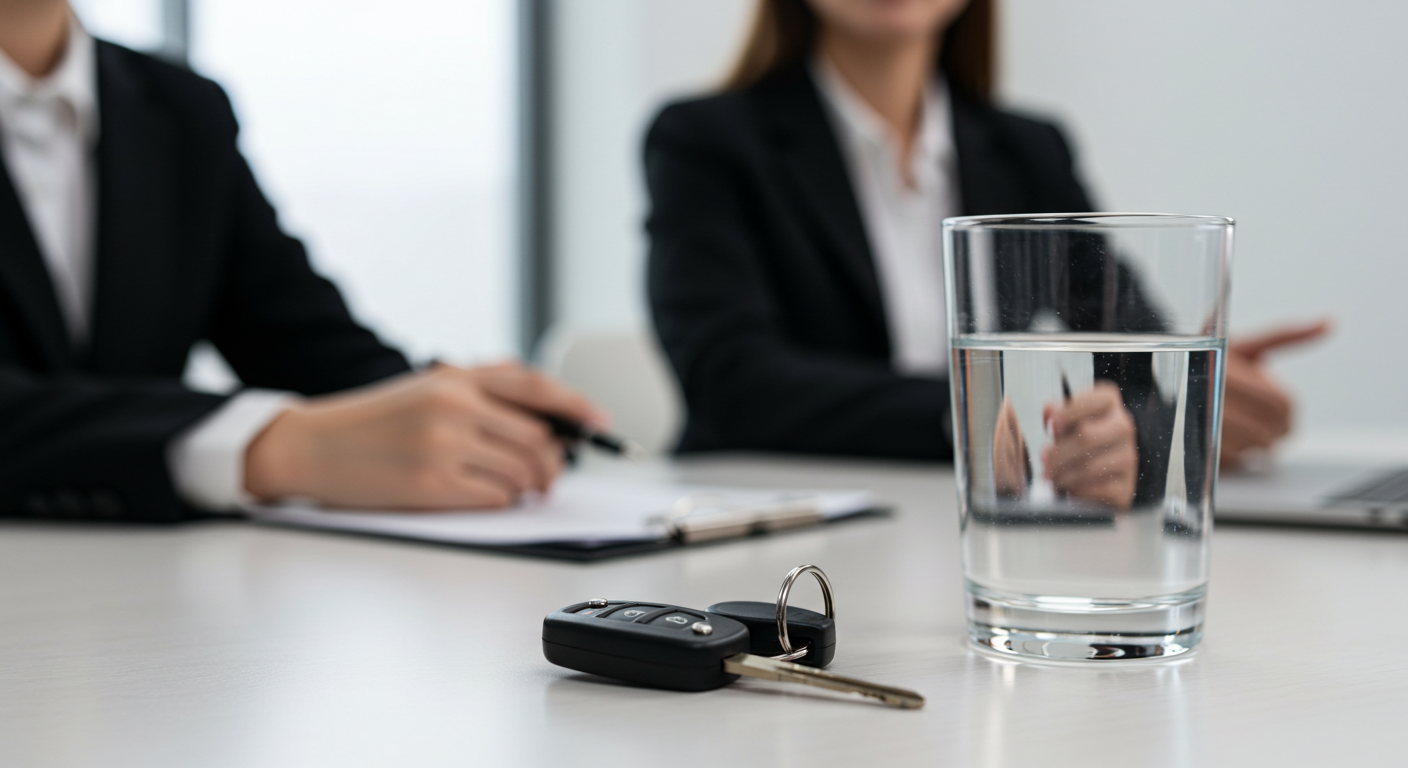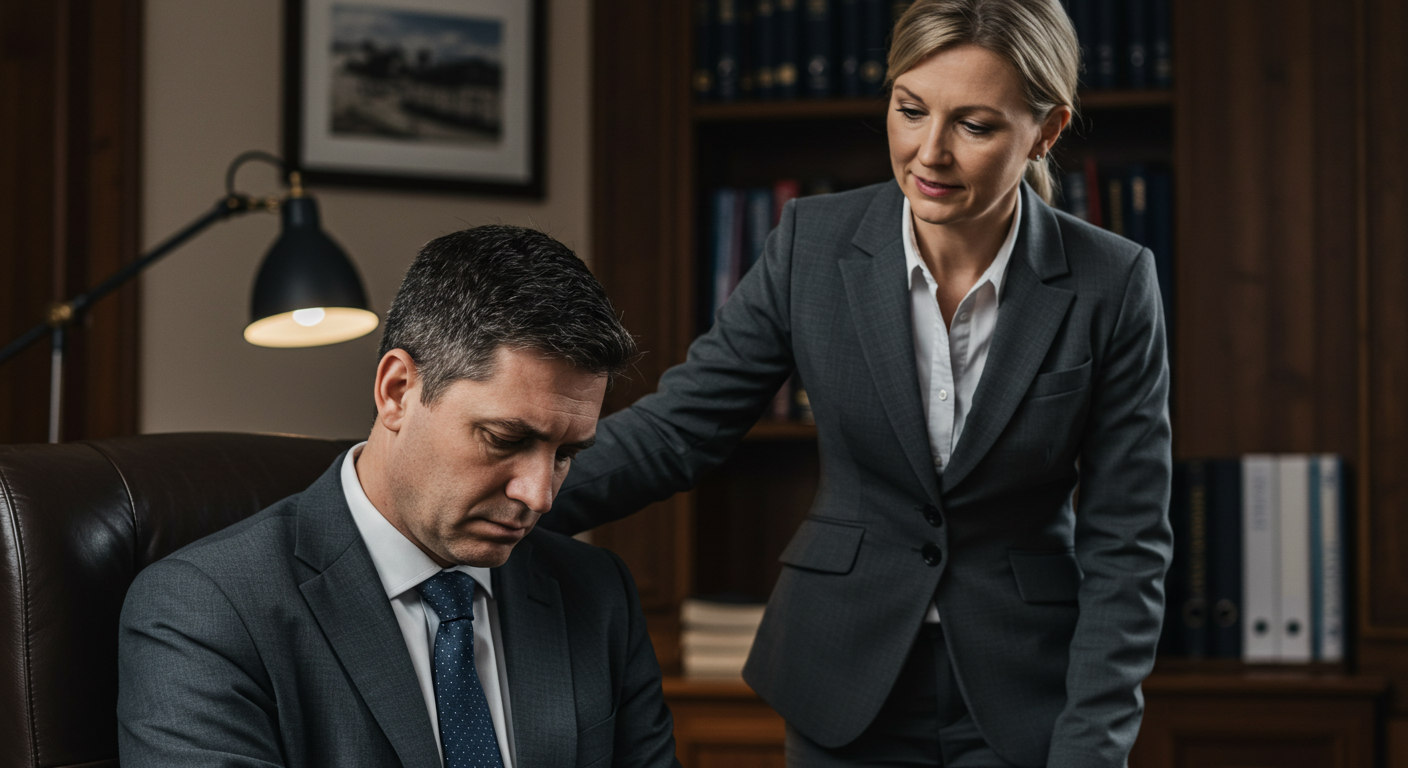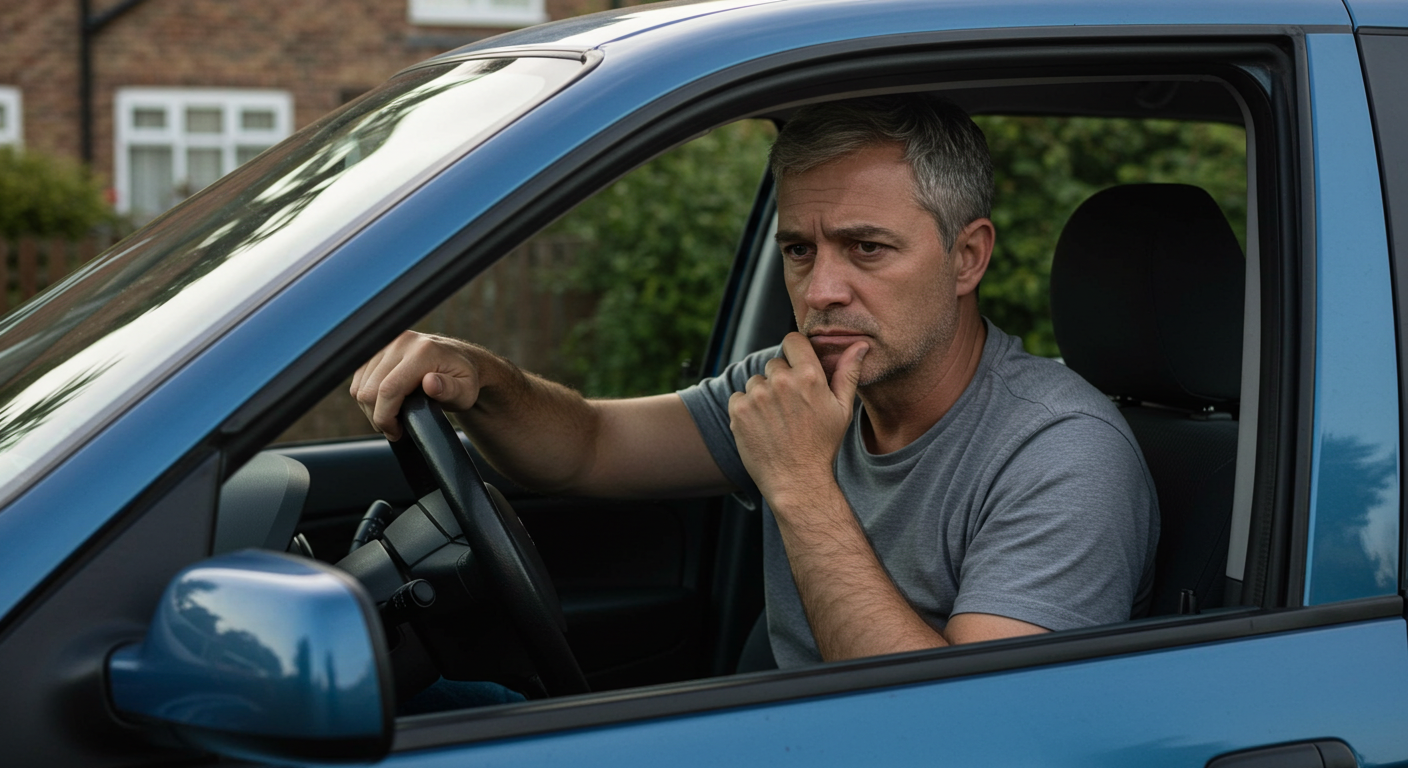Navigating Drink Driving Offences in England: Your Comprehensive Guide

Navigating Drink Driving Offences in England: Your Comprehensive Guide
Facing prosecution for a drink driving offence in England can be a distressing and overwhelming experience. The legal consequences and potential impact on your personal and professional life can be significant. However, understanding the process, your rights, and the available defences can help you navigate this challenging situation. As a reputable criminal defence solicitors firm, we are here to provide you with a comprehensive guide to help you understand drink driving offenses in England and the best strategies for a strong defence.
Drink driving offences are taken very seriously by the law, as they pose a significant risk to road safety and public welfare. The legal limits for alcohol consumption while driving are strictly enforced, and exceeding these limits can lead to severe penalties, including fines, driving disqualification, mandatory alcohol education courses, community service, and even imprisonment in certain cases.
Upon being charged with a drink driving offence, your driving license will be suspended until your case is resolved, which can have immediate consequences on your ability to travel, commute, and carry out your daily responsibilities. It is crucial to seek legal representation from a specialist criminal defence solicitor who has experience in handling drink driving cases. They will provide expert guidance throughout the legal process, protect your rights, and develop a robust defence strategy tailored to your unique circumstances.
When facing a drink driving prosecution, it is important to consult with a solicitor who specialises in this area of law. They will conduct a thorough review of your case, examining police reports, breathalyser readings, and any other evidence against you. This assessment will help them identify any potential weaknesses or procedural errors in the prosecution’s case, which can be used to your advantage in building a strong defence.
Your solicitor will explore various defence strategies, such as challenging the stop, contesting the accuracy of the breathalyser test, presenting evidence of medical conditions or medications that may have affected the results, or identifying procedural errors that may render evidence inadmissible. They will guide you through the legal process, ensuring that you are aware of your rights and responsibilities at each stage, and represent your interests in court.
It is important to understand the potential consequences of a guilty plea versus mounting a defence. Your solicitor will provide advice on the most appropriate plea based on the evidence and circumstances of your case, explaining the potential implications of each plea option. If found guilty, they will advocate on your behalf during the sentencing phase, presenting mitigating factors to potentially reduce the severity of the penalties imposed.
If you are facing license disqualification, your solicitor can explore options for mitigating the duration of the disqualification or applying for a limited driving permit. They will explain the necessary steps and requirements to regain your driving privileges.
Facing a drink driving prosecution is a serious matter, but with the assistance of a skilled criminal defence solicitor, you can navigate the legal process, understand your options, and build a strong defence strategy. Seeking legal representation as early as possible is crucial to protect your rights and ensure the best possible outcome.
Our experienced solicitors are here to provide you with the support, guidance, and advocacy you need during this challenging time. Contact our firm today to discuss your case and begin building your defence.
Understanding Drink Driving Offences

The Legal Limit: In England, it is illegal to drive a motor vehicle if you exceed the legal alcohol limits. The legal limits for alcohol consumption while driving are as follows:
- 35 micrograms of alcohol per 100 milliliters of breath
- 80 milligrams of alcohol per 100 milliliters of blood
- 107 milligrams of alcohol per 100 milliliters of urine
Exceeding these limits while operating a motor vehicle is a criminal offense and can lead to prosecution.
Penalties for Drink Driving: Drink driving offenses carry severe penalties in England. The penalties imposed depend on several factors, including the level of alcohol detected, any previous convictions, and any aggravating factors present. The penalties can include:
- Fines: Drink driving offenses can result in significant fines. The amount of the fine will vary depending on the circumstances of the offence, with higher fines for higher levels of alcohol concentration.
- Driving Disqualification: A drink driving conviction often leads to a mandatory driving disqualification. The length of the disqualification period depends on the specific circumstances of the offense, such as the alcohol level detected and any previous convictions. Disqualification periods can range from 12 months to several years, and in some cases, a lifetime ban may be imposed.
- Alcohol Education Courses: In some cases, the court may require individuals convicted of a drink driving offense to attend mandatory alcohol education courses. These courses aim to educate individuals about the dangers of drink driving and help prevent reoffending.
- Community Service: The court may impose a community service order as an alternative to imprisonment. This requires the individual to perform unpaid work in the community for a specified period of time.
- Imprisonment: In more serious cases, such as repeat offenses or those involving high levels of alcohol concentration or accidents resulting in injuries, imprisonment may be imposed as a penalty. The length of the prison sentence depends on the circumstances of the offense and can range from a few months to several years.
Immediate Consequences: Upon being charged with a drink driving offence, your driving license will be suspended until your case is resolved. This means you are not permitted to drive during this period, and if you do, you may face additional charges and penalties. The immediate suspension of your license can have significant practical implications, affecting your ability to travel, commute, and carry out daily responsibilities.
It is important to note that the penalties for drink driving offenses can vary depending on the specific circumstances and the discretion of the court. It is always recommended to consult with a specialist criminal defence solicitor who has experience in handling drink driving cases. They will guide you through the legal process, explain the potential consequences of your specific situation, and develop a strong defence strategy tailored to your case.
If you are facing a drink driving charge, it is essential to seek legal representation as early as possible. Your solicitor will review the details of your case, including police reports, breathalyzer readings, and any other evidence against you. They will assess the strength of the prosecution’s case and identify any potential weaknesses or procedural errors that can be challenged.
Understanding the severity of drink driving offenses and the potential consequences is crucial for making informed decisions about how to proceed. With the help of an experienced criminal defence solicitor, you can navigate the legal process, protect your rights, and work towards the best possible outcome for your case.
Seeking Legal Representation
When facing a drink driving prosecution, it is crucial to seek legal representation from a specialist criminal defence solicitor who has experience in handling such cases. While you have the right to represent yourself in court, having a skilled solicitor by your side can make a significant difference in the outcome of your case. Here are the key reasons why seeking legal representation is essential:
- Expertise and Knowledge: A specialist criminal defence solicitor possesses the necessary expertise and knowledge of drink driving laws, legal procedures, and defence strategies. They are well-versed in the nuances of drink driving offenses and understand how to navigate the legal system effectively. Their experience and familiarity with similar cases enable them to provide you with tailored advice and guidance specific to your situation.
- Case Assessment: Your solicitor will conduct a thorough assessment of your case, examining the evidence, police reports, breathalyser readings, and any other relevant documentation. They will identify any potential weaknesses in the prosecution’s case, procedural errors, or inconsistencies that can be challenged in court. This meticulous review helps build a strong defence strategy and enhances your chances of achieving a favourable outcome.
- Legal Strategy and Defence Preparation: Based on the specifics of your case, your solicitor will develop a robust defence strategy tailored to your unique circumstances. They will explain the available defence options, such as challenging the stop, contesting the accuracy of the breathalyser test, or presenting mitigating factors. By analysing the evidence and understanding the prosecution’s arguments, your solicitor will help you make informed decisions about how to approach your defence.
- Court Representation: Your solicitor will act as your advocate and representative in court, ensuring that your rights are protected throughout the legal proceedings. They will present your defence, challenge the prosecution’s evidence, cross-examine witnesses, and argue on your behalf. Having an experienced solicitor by your side provides you with confidence and reassurance during what can be a highly stressful and intimidating process.
- Negotiation and Plea Bargaining: In some cases, your solicitor may engage in negotiation and plea bargaining with the prosecution. They will explore opportunities to secure a more favourable outcome by seeking a reduced charge or a lenient sentence. This negotiation process requires legal expertise, persuasive skills, and a deep understanding of the law, which your solicitor possesses.
- Knowledge of Legal Procedures: Navigating the legal process can be complex, with various procedural requirements and deadlines to meet. Your solicitor will ensure that all necessary documents are filed correctly and submitted on time, saving you the stress of dealing with the administrative aspects of your case. They will guide you through court appearances, advise you on appropriate behaviour and courtroom etiquette, and ensure that you understand the implications of each step in the legal proceedings.
Seeking legal representation from a specialist criminal defence solicitor is highly recommended when facing a drink driving prosecution. Their expertise, knowledge of the law, and experience in handling similar cases will prove invaluable throughout the legal process.
From case assessment and defence strategy development to courtroom representation and negotiation, your solicitor will provide the guidance and support you need to protect your rights, achieve the best possible outcome, and navigate the complexities of the legal system with confidence.
Exploring Defence Strategies

When facing a drink driving offense in England, exploring effective defence strategies is crucial to protect your rights and potentially mitigate the consequences of the charges. Your solicitor, with their expertise in criminal defence, will help you assess the circumstances of your case and develop a robust defence strategy. Here are some common defence strategies that may be applicable:
- Challenging the Stop: Your solicitor will thoroughly examine the circumstances leading to your traffic stop. They will assess whether the police had reasonable grounds to suspect you were driving under the influence of alcohol. If the stop was conducted without proper justification or if there were procedural irregularities, your solicitor can challenge the validity of the stop, which may result in evidence being suppressed or the charges being dismissed.
- Contesting the Breathalyser Test: Breathalyzer results are often crucial evidence in drink driving cases. Your solicitor will carefully scrutinize the accuracy and reliability of the breathalyser test administered to you. They will review factors such as the calibration of the device, the qualifications of the operator, and whether proper protocols were followed during the testing process. If there are grounds to question the validity of the breathalyser test, your solicitor can challenge its accuracy, potentially casting doubt on the prosecution’s evidence.
- Medical Conditions or Medications: If you have a medical condition or are taking prescribed medications that may have affected the breathalyser reading, your solicitor can present evidence to support this defence. Medical expert testimony can be crucial in establishing that factors other than alcohol consumption contributed to the breathalyser result. This defence strategy can be particularly effective if there is a documented history of your medical condition or a known interaction between the medication and breathalyser readings.
- Procedural Defences: Your solicitor will meticulously examine the entire process, ensuring that proper procedures were followed during your arrest, questioning, and breathalyser testing. Any breaches of your rights or failure to adhere to the correct procedures may render evidence inadmissible or weaken the prosecution’s case. Your solicitor will identify any procedural errors and use them as a basis to challenge the prosecution’s evidence.
- Rising Blood Alcohol Defence: In some cases, your solicitor may employ a rising blood alcohol defence. This defence argues that your blood alcohol level was below the legal limit at the time of driving but had increased by the time you were tested. By presenting evidence, such as witnesses or expert testimony, your solicitor can establish that the alcohol consumed after driving, but before testing, caused the elevated blood alcohol reading.
- No Intention to Drive Defence: If you can demonstrate that you had no intention to drive or were not in control of the vehicle at the time of the offense, your solicitor may employ the “no intention to drive” defence. This defence can be effective if there is evidence to support that you consumed alcohol after ceasing to drive or if the circumstances indicate that you did not have the ability to operate the vehicle, such as being asleep in the car or having the keys removed from the ignition.
- Expert Witnesses and Supporting Evidence: Your solicitor may call upon expert witnesses, such as toxicologists or accident reconstruction experts, to provide professional opinions or present scientific evidence that challenges the prosecution’s case. Expert witnesses can provide objective analysis and testimony to support your defence strategy.
It is important to note that the defence strategies employed will depend on the specific circumstances of your case. Your solicitor will thoroughly assess the evidence, evaluate the strengths and weaknesses of the prosecution’s case, and tailor the defence strategy accordingly.
Working closely with your solicitor, you can explore these defence strategies and determine the most appropriate course of action for your case. By presenting a strong defence, you increase your chances of obtaining a favourable outcome, such as a reduction in charges, acquittal, or minimized
Navigating the Legal Process
When facing a drink driving offense in England, understanding the legal process and the steps involved is crucial to effectively protect your rights and present your defence. Your solicitor will guide you through each stage of the process, ensuring that you are well-prepared and informed. Here is a detailed overview of the legal process involved in drink driving cases:
- Police Investigation: The process often begins with a police investigation. If you are suspected of driving under the influence, you may be pulled over, subjected to field sobriety tests, and asked to provide a breath sample using a roadside breathalyser. The police will gather evidence and compile a report, which will be forwarded to the Crown Prosecution Service (CPS) for consideration of charges.
- Charge and Summons: If the CPS determines that there is sufficient evidence, they may decide to proceed with charging you for the drink driving offense. You will receive a summons, which will outline the specific charge(s) against you, the date, time, and location of your court appearance. It is important to carefully review the summons and seek legal advice as soon as possible after receiving it.
- Legal Representation: Engaging the services of a specialist criminal defence solicitor is crucial at this stage. Your solicitor will become your trusted legal advocate, guiding you through the process, explaining your rights, and providing expert advice on defence strategies. For guides on how to choose the right solicitor for you, here is our article on what questions to ask for your solicitor. They will review the evidence against you, assess the strength of the case, and develop a defence strategy tailored to your circumstances.
- Plea Options: Your solicitor will discuss the available plea options with you. These options include pleading guilty, not guilty, or, in some cases, negotiating for a lesser charge. Your solicitor will explain the potential consequences and implications of each plea option, helping you make an informed decision based on the specific circumstances of your case.
- Case Preparation: Your solicitor will thoroughly investigate the case, gathering evidence and identifying potential defences. They will examine the police reports, witness statements, breathalyser readings, and any other relevant documentation. Based on this information, they will develop a robust defence strategy aimed at challenging the prosecution’s case and protecting your rights.
- Court Appearances: Depending on the complexity of your case, there may be several court appearances. The initial hearing is usually an administrative hearing where you will confirm your plea. If you plead not guilty, subsequent hearings will be scheduled for case management, disclosure of evidence, and trial preparation. Your solicitor will represent you in court, presenting your defence, cross-examining witnesses, and challenging the prosecution’s evidence.
- Trial: If you plead not guilty and the case proceeds to trial, your solicitor will diligently prepare for the trial. This includes reviewing evidence, identifying and preparing witnesses, and refining the defence strategy. During the trial, your solicitor will present your case, challenge the prosecution’s evidence, and cross-examine witnesses. It is important to follow your solicitor’s guidance and maintain composure throughout the trial.
- Verdict and Sentencing: Following the trial, the court will deliver a verdict. If found guilty, the court will proceed to sentencing. The penalties imposed will depend on various factors, including the seriousness of the offense, the level of alcohol detected, any aggravating factors, and your previous record. Your solicitor will advocate on your behalf, presenting mitigating factors to potentially reduce the severity of the penalties imposed.
- License Disqualification and Rehabilitation: If convicted of a drink driving offense, the court will impose a period of license disqualification. The length of disqualification depends on the specific circumstances of the offense. Your solicitor can provide guidance on the possibility of reducing the disqualification period or exploring alternative arrangements such as applying for a limited driving permit.
Wrapping Up: Navigating the Complexities of Drink Driving Offenses in England

Throughout the legal process, your solicitor will provide ongoing support, guidance, and representation. They will ensure that you understand each stage of the process, advise you on appropriate behaviour in court, and protect your rights and interests at all times.
By working closely with your solicitor, following their advice, and cooperating fully, you can navigate the legal process with confidence, ensuring the best possible outcome for your case.
Navigating a drink driving offence in England can be a daunting and challenging experience. However, with the guidance and expertise of a specialist criminal defence solicitor, you can effectively protect your rights, present a strong defence, and navigate the legal process with confidence.
Throughout the legal process, seeking legal representation is crucial. A skilled solicitor will provide you with invaluable support, advice, and representation. They will meticulously analyse the evidence, develop a tailored defence strategy, and advocate on your behalf in court. By engaging the services of a specialist solicitor, you can benefit from their knowledge, experience, and understanding of the complexities involved in drink driving cases.
From the initial police investigation to the court appearances, your solicitor will be there to guide you every step of the way. They will explain the legal process, your rights, and the available options, allowing you to make informed decisions about your case. By thoroughly investigating the evidence, your solicitor will identify potential weaknesses in the prosecution’s case and develop strategies to challenge the evidence presented against you.
Whether it involves challenging the stop, contesting the breathalyser test, presenting evidence of medical conditions or procedural errors, or utilising other defence strategies, your solicitor will strive to achieve the best possible outcome for your case. They will represent your interests, cross-examine witnesses, and present a compelling defence in court.
In the event of a trial, your solicitor will prepare diligently, ensuring that you are fully informed and ready to present your case. They will guide you through the courtroom proceedings, provide expert advice, and handle any legal complexities that arise during the trial.
If convicted, your solicitor will continue to support you during the sentencing phase, presenting mitigating factors to potentially reduce the severity of the penalties imposed. They can also provide guidance on license disqualification and explore alternatives such as limited driving permits, where applicable.
Ultimately, by working closely with a specialist criminal defence solicitor, you can navigate the legal process with confidence, knowing that your rights are protected and that you have a dedicated advocate fighting for your best interests. Their expertise, knowledge of the law, and strategic approach will maximize your chances of achieving a favourable outcome.
Facing a drink driving offense is a serious matter, but with the right legal representation, you can minimise the impact and work towards a positive resolution. Contact our reputable criminal defence solicitors firm today to discuss your case and receive the support and guidance you need to navigate the legal process successfully.
Notice: Informational Content Disclaimer
The content provided on this website, including articles, blog posts, and other informational materials, is intended for general informational purposes only. It is not intended as, and should not be considered, legal advice.
Visitors to this website should be aware that the information presented here is not a substitute for seeking legal advice from a qualified solicitor or legal professional. Each individual's legal situation is unique, and the information provided may not be applicable to specific circumstances.
If you require legal advice or have specific legal questions, we encourage you to contact us directly. Our experienced team of solicitors is here to assist you with your legal needs and provide tailored advice to address your concerns.
Please be advised that any communication through this website, including the use of contact forms or email, does not create a solicitor-client relationship. Confidential or time-sensitive information should not be sent through this website. To establish a solicitor-client relationship and discuss your legal matters in detail, please contact us for a consultation.
We strive to provide accurate and up-to-date information, but we make no representations or warranties regarding the accuracy, completeness, or suitability of the information contained on this website. We shall not be liable for any reliance placed on the information provided herein.
Thank you for visiting our website. We look forward to the opportunity to assist you with your legal needs.




